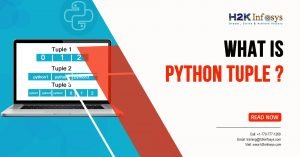In 2026, Python remains the primary language for data engineering due to its robust ecosystem for ETL (Extract, Transform, Load) processes and big data integration. Interviews for these roles typically span four main categories: core language fundamentals, data manipulation libraries, ETL/Pipeline logic, and system integration.
1. Python Core & Data Structures
Interviewers use these questions to gauge your understanding of memory efficiency and basic logic.
- Mutability vs. Immutability: What is the difference between a list and a tuple?
- Key point: Lists are mutable (can change), while tuples are immutable and generally more memory-efficient.
- Deep vs. Shallow Copy: When would you use
copy.deepcopy()?- Key point: A shallow copy creates a new object but references existing elements; a deep copy recursively duplicates everything, preventing accidental changes to the original data.
- Generators and
yield: How do they help in processing large datasets?- Key point: Generators produce items one at a time instead of loading the entire sequence into RAM, which is critical for memory-constrained data pipelines.
- List & Dictionary Comprehensions: How do you create a dictionary of squared values from a list of even numbers?
- Key point: These provide a concise, often faster alternative to standard
forloops.
- Key point: These provide a concise, often faster alternative to standard
2. Data Manipulation (Pandas & NumPy)
For data engineering, the focus is on efficient data cleaning and transformation.
- Large File Handling: How do you process a 10GB CSV file on a machine with 8GB RAM?
- Solution: Use the
chunksizeparameter inpd.read_csv()to iterate through the data in manageable pieces.
- Solution: Use the
- Handling Missing Values: What is the difference between
dropna()andfillna()?- Context: Discuss strategies like imputing means or forward-filling for time-series data.
- Joins & Merges: Explain the difference between
merge(),join(), andconcat().- Key point:
merge()is for SQL-style joins on keys,join()is typically for index-based joins, andconcat()stacks dataframes.
- Key point:
3. ETL Logic & Big Data Integration
These questions test your ability to design resilient production-grade systems.
- Idempotency: What is an idempotent pipeline and why is it important?
- Key point: An idempotent pipeline ensures that running the same job multiple times with the same input produces the same result without duplicating data.
- Schema Drift: How do you handle cases where a source API suddenly adds or removes columns?
- Solution: Implement schema validation (e.g., using Pydantic or Great Expectations) or use “schema-on-read” approaches.
- Distributed Processing (PySpark): When would you choose PySpark over Pandas?
- Context: Discuss horizontal scaling for terabyte-scale data where single-node Pandas would crash.
- API Ingestion: How do you handle rate limits and timeouts when fetching data from an external REST API?
- Solution: Use retry logic with exponential backoff and libraries like
requestsorhttpx.
- Solution: Use retry logic with exponential backoff and libraries like
4. Advanced Concepts & Optimization
- Global Interpreter Lock (GIL): How does it affect multi-threading in Python?
- Key point: The GIL prevents multiple native threads from executing Python bytecodes at once, making multi-processing better for CPU-bound tasks and multi-threading better for I/O-bound tasks.
- Database Connectivity: How do you prevent SQL injection when using
psycopg2?- Solution: Use parameterized queries instead of string formatting to separate SQL code from user data.
- Resource Management: What is the benefit of the
withstatement?- Key point: It acts as a context manager, ensuring resources like file handles or database connections are closed automatically even if an error occurs.
By completing AI Python Course, you gain hands-on experience in these libraries, making you job-ready.
Common Python Interview Questions for Data Engineers
Below are some of the most important Python interview questions you should prepare for. Each includes context, examples, and practical tips.
1. What are Python’s strengths for data engineering?
Answer:
Python is highly versatile. It simplifies data extraction, cleaning, transformation, and loading (ETL). It also connects well with SQL and NoSQL databases, cloud services, and big data tools like Hadoop and Spark.
Example:
import pandas as pd
df = pd.read_csv("sales_data.csv")
df_clean = df.dropna().drop_duplicates()
print(df_clean.head())
This snippet demonstrates quick data cleaning, a task every data engineer performs.
2. How do you handle large datasets in Python?
Answer:
For large datasets, Python uses libraries like Pandas with chunksize, Dask, or PySpark. These tools allow distributed data processing.

Example with Pandas:
chunks = pd.read_csv("large_data.csv", chunksize=10000)
for chunk in chunks:
process(chunk) # custom function
Employers ask this in Python interview questions to test efficiency skills.
3. What are Python’s file handling capabilities?
Answer:
Data engineers often work with multiple file types such as CSV, JSON, and Parquet. Python offers built-in functions and libraries for this.
Example:
import json
with open("data.json", "r") as file:
data = json.load(file)
print(data)
Knowledge of file handling is critical because real-world pipelines depend on it.
4. How do you connect Python to a SQL database?
Answer:
You can use Python libraries like SQLAlchemy or pyodbc.

Example:
from sqlalchemy import create_engine
engine = create_engine('mysql+pymysql://user:password@localhost/dbname')
df = pd.read_sql("SELECT * FROM employees", engine)
print(df.head())
Database-related Python interview questions help employers evaluate integration skills.
5. What are Python decorators, and how are they useful?
Answer:
Decorators allow you to modify a function’s behavior without changing its code. In data engineering, they help with logging, monitoring, or timing pipeline steps.

Example:
def log_function(func):
def wrapper(*args, **kwargs):
print("Function started")
result = func(*args, **kwargs)
print("Function ended")
return result
return wrapper
@log_function
def process_data():
print("Processing data...")
process_data()
6. How do you ensure error handling in data pipelines?
Answer:
Error handling ensures pipelines don’t fail silently. Python uses try-except blocks.
Example:
try:
df = pd.read_csv("input.csv")
except FileNotFoundError:
print("File not found. Please check the path.")
Employers often include this in Python interview questions to test debugging skills.
7. What are Python generators, and why are they important?
Answer:
Generators yield data one item at a time, which is memory-efficient for large datasets.

Example:
def generate_numbers(n):
for i in range(n):
yield i
for num in generate_numbers(5):
print(num)
This is useful for handling streaming data in pipelines.
8. How do you optimize Python code for performance?
Answer:
- Use vectorized operations in NumPy/Pandas.
- Use multiprocessing for parallel tasks.
- Profile code with
cProfile.
Optimization-related Python interview questions test problem-solving abilities.
9. What are Python’s best libraries for data engineering?
- Pandas – data manipulation
- NumPy – numerical processing
- PySpark – big data processing
- SQLAlchemy – database connections
- Airflow – workflow automation
Employers expect candidates with an online Python certification to know these.
10. How do you use Python for data validation?
Answer:
Data validation ensures data quality.
Example:
def validate_age(age):
if 0 < age < 120:
return True
return False
print(validate_age(25)) # True
print(validate_age(-5)) # False
Advanced Python Interview Questions for Data Engineers
These advanced-level Python interview questions test deeper knowledge.
11. Explain Python’s Global Interpreter Lock (GIL).
Python’s Global Interpreter Lock (GIL) is a mechanism used in the standard Python implementation (CPython) to ensure that only one thread executes Python bytecode at a time, even on multi-core processors. Its primary purpose is to simplify memory management and maintain thread safety for Python’s internal data structures.
Python uses automatic memory management with reference counting. Every object keeps track of how many references point to it, and when this count reaches zero, the object is deallocated. In a multi-threaded environment, updating reference counts concurrently could lead to race conditions and memory corruption. The GIL prevents this by allowing only one thread to modify Python objects at any given moment.
Because of the GIL, CPU-bound multi-threaded Python programs do not run in parallel on multiple cores. Even if you create several threads, they take turns executing, which limits performance gains for tasks like mathematical computations, data processing, or heavy algorithms.
However, the GIL does not significantly affect I/O-bound programs. When a thread performs blocking operations such as reading from a file, making a network request, or waiting for a database response, the GIL is released. This allows other threads to run, making threading useful for tasks like web scraping, APIs, and concurrent I/O operations.
To bypass the limitations of the GIL for CPU-intensive workloads, developers commonly use:
- Multiprocessing, which runs multiple Python processes with separate memory spaces
- Native extensions written in C/C++ that release the GIL during heavy computation
- Alternative Python implementations that handle threading differently
Understanding the GIL helps developers choose the right concurrency model and design efficient, scalable Python applications.
12. What’s the difference between multiprocessing and multithreading?
Multiprocessing and multithreading are two techniques used to run tasks concurrently, but they differ in how they use system resources and handle execution.
Multithreading runs multiple threads within a single process. All threads share the same memory space, which makes communication between threads fast and efficient. However, in Python (specifically CPython), multithreading is limited by the Global Interpreter Lock (GIL). Because of the GIL, only one thread can execute Python bytecode at a time, which means multithreading does not provide true parallelism for CPU-bound tasks. It is best suited for I/O-bound operations such as file handling, network requests, and database interactions, where threads often wait for external resources.
Multiprocessing, on the other hand, uses multiple independent processes. Each process has its own memory space and Python interpreter, allowing true parallel execution across multiple CPU cores. This makes multiprocessing ideal for CPU-bound tasks like data analysis, numerical computation, and machine learning workloads. The trade-off is higher memory usage and slower inter-process communication compared to threads.
In summary, multithreading is lightweight and efficient for I/O-bound tasks, while multiprocessing enables real parallelism and better performance for CPU-intensive workloads.
13. How do you monitor and schedule Python pipelines?
Monitoring and scheduling Python pipelines are essential for ensuring that automated workflows run reliably, on time, and without errors. A Python pipeline typically consists of multiple steps such as data ingestion, transformation, validation, and output generation, often executed on a fixed schedule or triggered by events.
Scheduling is commonly handled using tools like cron jobs, task schedulers, or workflow orchestrators. These allow you to define when a pipeline should run—hourly, daily, or based on dependencies between tasks. Modern schedulers support retries, task dependencies, and conditional execution, which helps manage complex pipelines where one step depends on the successful completion of another.
Monitoring focuses on visibility and reliability. Logs are the first layer of monitoring, capturing execution details, errors, and performance metrics. Centralized logging makes it easier to debug failures and track historical runs. Alerts and notifications are also critical; they notify teams when a pipeline fails, runs longer than expected, or produces unexpected results.
Health checks and status dashboards are often used to monitor pipeline states such as running, succeeded, failed, or delayed. Metrics like execution time, resource usage, and data quality indicators help identify bottlenecks and inefficiencies.
Together, effective scheduling ensures pipelines run at the right time, while robust monitoring ensures issues are detected early and resolved quickly, keeping data workflows stable and dependable.
14. How do you use Python in cloud-based data engineering?
Python plays a central role in cloud-based data engineering because of its simplicity, scalability, and strong ecosystem of data tools. It is widely used to build, automate, and manage data pipelines that run on cloud platforms.
In cloud environments, Python is commonly used for data ingestion. Engineers write Python scripts to collect data from APIs, databases, streaming sources, and file storage systems. These scripts can run as scheduled jobs or serverless functions, enabling scalable and cost-efficient data collection.
Python is also essential for data transformation and processing. Libraries such as Pandas, PySpark, and NumPy help clean, validate, and enrich raw data before storing it in data warehouses or lakes. In large-scale systems, Python integrates with distributed processing frameworks to handle massive datasets efficiently.
For orchestration and automation, Python is used to define workflows, manage dependencies, and trigger tasks based on schedules or events. Cloud-native services allow Python pipelines to scale automatically, recover from failures, and run in parallel.
Python also supports monitoring and logging in cloud data engineering. Engineers use it to track pipeline performance, capture errors, and send alerts when issues occur.
Overall, Python acts as the glue that connects cloud storage, compute services, and analytics tools, making it a foundational language for modern cloud-based data engineering workflows.
15. What is serialization in Python, and why is it used?
Serialization converts objects into formats like JSON or Pickle for storage or transmission.
Example:
import pickle
data = {"name": "H2K Infosys"}
with open("data.pkl", "wb") as f:
pickle.dump(data, f)
Tips to Prepare for Python Interview Questions
- Practice daily coding: Use datasets to apply concepts.
- Focus on problem-solving: Employers want efficiency, not just syntax.
- Take a structured program: Completing a Python training certification ensures you cover all interview-relevant topics.
- Build projects: Create ETL pipelines, data cleaning scripts, and database integration tasks.
Key Takeaways
- Python is the most in-demand language for data engineers.
- Recruiters test both basic and advanced skills through Python interview questions.
- Hands-on preparation is critical, and completing an online Python certification builds confidence.
Conclusion
Preparing for data engineering roles requires a strong command of Python and the ability to solve real-world problems. Mastering these Python interview questions will not only help you crack interviews but also excel in practical job tasks.
Enroll in H2K Infosys’ python programming online today to gain hands-on skills, earn a Python training certification, and fast-track your data engineering career.


























